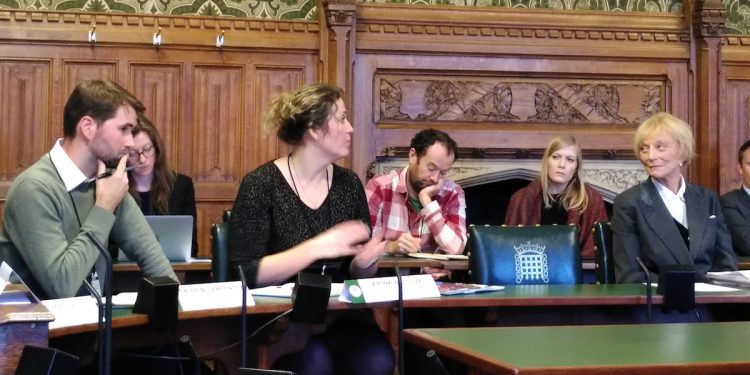Parliamentarians and fisheries sector representatives met in Westminster to discuss the socio-economic challenges and opportunities facing fishing UK communities. The Social and Economic Sustainability event, arranged by the All Party Parliamentary Group on Fisheries, provided a briefing on the issue for the seven parliamentarians present and discussed how issues can be addressed through policy and collective action. The session was the APPG’s most popular to date.
The fisheries sector can be challenging to work in due to sporadic income, unsociable working hours, and risks to health and safety. These social factors, among others, can affect entire coastal communities. What’s more, reports have highlighted that a substantial number of fishing communities suffer from socio-economic deprivation.
Panelist Deborah Layde, Grants Director at Seafarers UK, flagged that income insecurity was a top concern.
‘Insecure, fluctuating incomes create problems in maintaining regular payments for housing, council tax and priority debts. These problems can then lead to housing, mental and physical health issues,’ she said.
Seafish chief economist Arina Motova commented that uncertainty is the main challenge facing the fishing industry.
‘Uncertainty in future quota and fisheries management, uncertainty in trade relationships for those who are involved in trade (as we discussed during our meeting most fish caught by the UK fleet is exported and most of the fish consumed and processed is imported) and uncertainty in availability of labour force (especially for the processing industry in remote communities with not enough local people interested in seafood sectors jobs),’ she said.
‘It’s very difficult to plan any business or investment in this environment. When looking at more specific social issues, as I mentioned during the meeting, the average age of UK fishers is 42 with the average age of skippers much higher, especially in some regions. The sector needs to attract younger workers to transfer skippers’ knowledge to future generations. The main challenge in this field is how to attract young people and how to compete with better paid and more stable jobs in other sectors, especially as working conditions at sea or at processing plant are often seen as less attractive.’
Griffin Carpenter, senior researcher at the New Economics Foundation has a similar outlook on the challenge of uncertainty.
‘The UK fishing industry and the communities that support and are supported by it have a major challenge in responding to a technological and economic transition. Technological change has dramatically reduced the number of fishers and fishing vessels – a trend mirrored in other coastal states like Iceland and Norway,’ he said.
‘Despite the UK fishing industry posting record profits and turnover, the very obvious and visible reduction in vessels and employment means that many people feel that the fishing is an industry in decline. Even with this reduced fleet size, finding crew for vessels is becoming increasingly difficult and new entrants to the industry are scarce. Do we accept these trends as inevitable or attempt to turn the tide?’
He commented that to address this, a vision is needed for the fishing industry.
‘New policies will be required, but first we need vision for the industry. Marine fisheries are, and will continue to be, a public resource owned by society as a whole. Now is the time for new radical visions of what modern fisheries could look like.’
Proposed solutions to socioeconomic challenges were broad-ranging and acknowledged the complexity of the situation. Including fishers in management and policy decisions, and developing port infrastructure were among the priorities discussed.
‘We need to impress upon policymakers that the sustainability of those that work in fishing and coastal communities is just as important as the sustainability of our fish stocks – indeed welfare and health of fishers should be embedded in policy,’ Deborah Layde said.
‘It is not all about the fish!’









